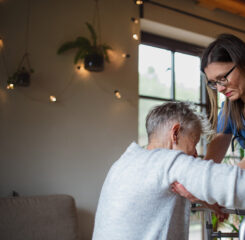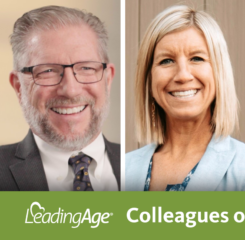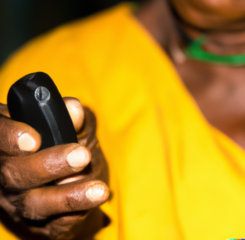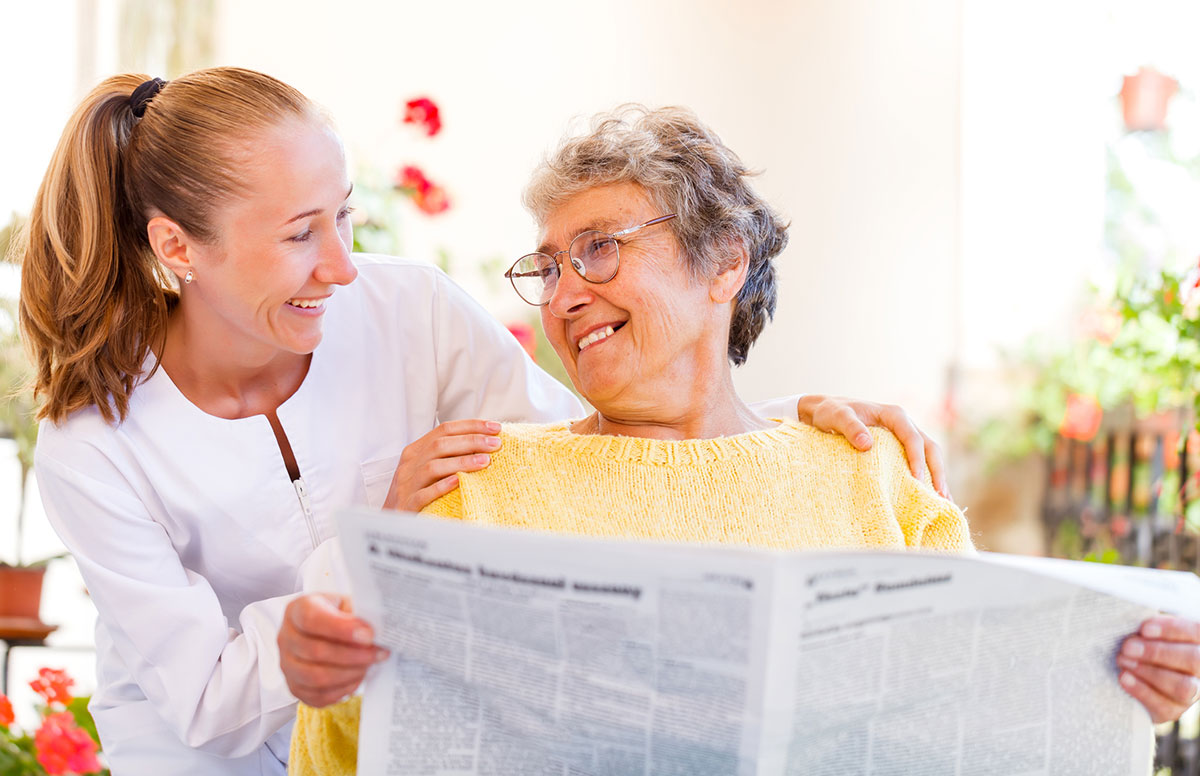In Their Own Words: Living with Dementia
Mary Radnofsky, Tracey Lind, Brian Van Buren, and Brian LeBlanc have at least 2 things in common: they are all living with dementia, and they are all strong advocates for people living with dementia.
The 4 advocates spoke frankly about living with dementia at this year’s PEAK Leadership Summit. Here, in their own words, are their thoughts about the challenges and blessings associated with living with dementia, and how providers of aging services can offer meaningful support along the journey.
What is Your Main Message as an Advocate?
See me, not my Alzheimer’s: “I just want to be treated as a person as much as I was before I told the world that I have Alzheimer’s disease,” said Brian LeBlanc, a former public relations professional who received his diagnosis in 2014. “People don’t really understand that you can still understand and still can have a conversation with them, and still can laugh and joke and have a good time.”
Get ready for us: “The goal of my own activism is twofold,” said Tracey Lind, an Episcopal priest who was diagnosed with frontal temporal degeneration in 2016. “One is that you all (have to) get ready for us, the baby boomers, to enter your communities. I am really concerned that the scope of (dementia) is likely to bankrupt Medicare and Medicaid, and that we need to be having really strong advocacy to make sure that we don’t start warehousing people who can’t afford private pay when they need help.”
Let us age in community: “The baby boomers are coming of age right now and when we start getting diagnosed (in our 50s), it becomes a major problem because there are not enough retirement villages or assisted living communities in the world to accommodate all of us,” said Mary Radnofsky, a former college professor who lives with leukodystrophy, a rare form of dementia. “We need ways of staying where we want to live. Indeed, that is one of our rights. (I want to) make sure that the voice of people with dementia definitely gets heard and that means asking us what we want and then … creating the support system that will allow us to actually have what we want.”
Support people with limited resources: “I am involved in a support group of African Americans in Charlotte,” said Brian Van Buren, a retired international flight attendant who was diagnosed with Alzheimer’s disease 2 years ago. “These are all people who are taking care of their family members. They can’t afford to put their parents into assisted living homes. So (they) had to quit their jobs, stay home, and take care of mom and dad. And they have so many questions. The doctors don’t know how to answer (those questions), so they get a lot of their information from the support group.”
What Action Have You Taken to Address the Daily Challenges You Face?
Alleviating loneliness: “My doctor didn’t like the idea of me living alone,” said Van Buren. “So I belong to a national organization called Couch Surfers (through which) people from all over the world … can send an email and can ask if they can sleep on your couch. Last year I hosted 85 people from all over the world. I have company 2-3 times a week, which has really alleviated the problem of being alone and being isolated.”
Using technology: “I was forgetting to eat, I was forgetting to bathe, I was forgetting to take medications,” said LeBlanc. “Technology has played such a big part in giving me reminders (about) when to do things. Now my phone is never far from me.”
Enlisting help from friends: “As my disease takes away my language, I am really afraid of being lonely,” said Lind. “So I got a list of friends and they know they are on the list, and they know that they have to show up.”
What Have You Gained from the Experience of Living with Dementia?
No fear: “For the first 3 months (after diagnosis), I lay in my bed and cried because I thought my life was over,” said Van Buren. “Then, I realized that I can reimagine my life doing something else, becoming an advocate. I don’t worry about the future … like I used to.”
A new chapter: “I have spent the last 18 months … trying to find the unexpected grace in this,” said Lind. “I am discovering some depth of spiritual learning that I never even knew existed or could imagine. I use the language that ‘God is really in this one,’ and (I am) helping people understand that it is really not the end of their life. It is the beginning of a new chapter and that, to me, is an incredible blessing.”
Living in the moment: “I feel that I am somehow closer to people, closer to nature,” said Radnofsky. “I enjoy the moment. I just want to relate to people and that is true for most of us, I think, because we are people. The diagnosis of dementia doesn’t change the fact that we were human before we had the diagnosis, we are still human after the diagnosis. My mantra is ‘Once human, forever human.’”
How Can Providers of Aging Services Support You?
Unlock memory care: “Segregating any members of the population is actually not appropriate,” said Radnofsky, who successfully advocated for the inclusion of people with dementia in the United Nations’ Convention on the Rights of Persons with Disabilities. “We are not prisoners, we have committed no crimes. Segregating us into a memory unit, especially a locked memory unit, borders on some very questionable ethical and legal practices. Not to mention that it is really unhealthy because all of us still love to be around children and people of all ages.”
Hold honest conversations: “Have an honest conversation among residents about (dementia) and then start developing communities of support within the community, and (activities) to sensitize the other residents,” said Lind, who serves on the board of Judson Services, Inc., a LeadingAge member in Cleveland, OH. “If someone interrupts a concert because they are having a ‘dementia moment,’ well, maybe there is a loving way to respond to that, instead of saying they shouldn’t be able to be at the concert. That (requires) training for everyone, not just staff.”
Treat me with dignity: “What I hope for myself is to live a really high-quality independent life for a long as I am able,” said Lind. “And I hope that when I have to move into assisted living, that I will be treated and cared for with the dignity and the respect of a mature adult, and that I won’t be infantilized, and that I won’t be seen as a burden, as just one more thing that a caregiver has to do.”

Most Recommended
February 29, 2024
Say Yes to Lobby Day!
April 05, 2024
Cyberattack Updates: Change Healthcare Payment Platform
April 22, 2024
 Nursing Home Staffing Ratios: LeadingAge Is On the Case
Nursing Home Staffing Ratios: LeadingAge Is On the Case
March 27, 2024
 Colleagues on the Move, March 27, 2024
Colleagues on the Move, March 27, 2024
April 12, 2024
Improving Medicare Advantage
Recently Added
April 24, 2024
 Salary Threshold for White Collar Overtime Exemptions Raised
Salary Threshold for White Collar Overtime Exemptions Raised
April 24, 2024
 Colleagues on the Move, April 24, 2024
Colleagues on the Move, April 24, 2024
April 22, 2024
CAST Safety Technology Selection Tool Updated
April 22, 2024



